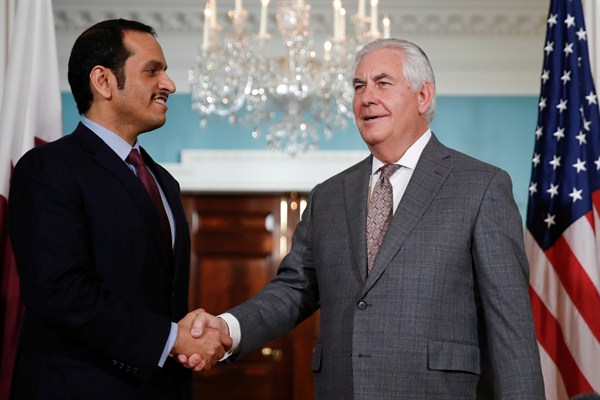For the past nine months, the tiny but very wealthy Arab state of Qatar has been subjected to a blockade by its three immediate neighbors—Saudi Arabia, the United Arab Emirates and Bahrain—as well as Egypt, which accuse it of supporting terrorism and aligning itself with their regional rival, Iran. But the blockade has hardly achieved its aim of isolating Qatar and forcing it to abandon its independent foreign policy. Instead, Qatar’s economy remains mostly unaffected and its external relations are largely intact.
On Tuesday, however, Qatar lost an important partner when President Donald Trump abruptly sacked his secretary of state, Rex Tillerson, who had pushed for an end to the rift in the Gulf. Qatar and the countries imposing the blockade are all members of the Gulf Cooperation Council, as well as U.S. allies. Tillerson’s replacement, the hawkish CIA director and former tea partyer congressman Mike Pompeo, is largely seen as sympathetic to Saudi Arabia’s point of view, at least on Iran and the Muslim Brotherhood.
But Pompeo’s take on the Gulf row is still a question mark. “Tillerson was actively involved in attempts to moderate the inter-Gulf dispute, and now with Tillerson gone I am not sure if Pompeo will have that inclination,” says Dalia Dassa Kaye, the director of the Center for Middle East Public Policy at the RAND Corporation.

